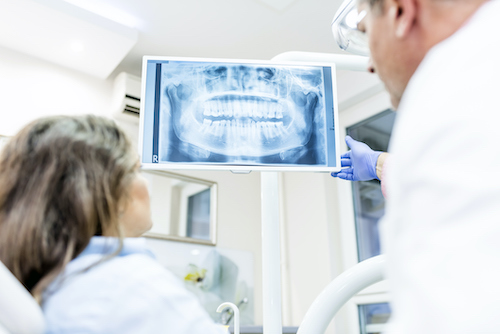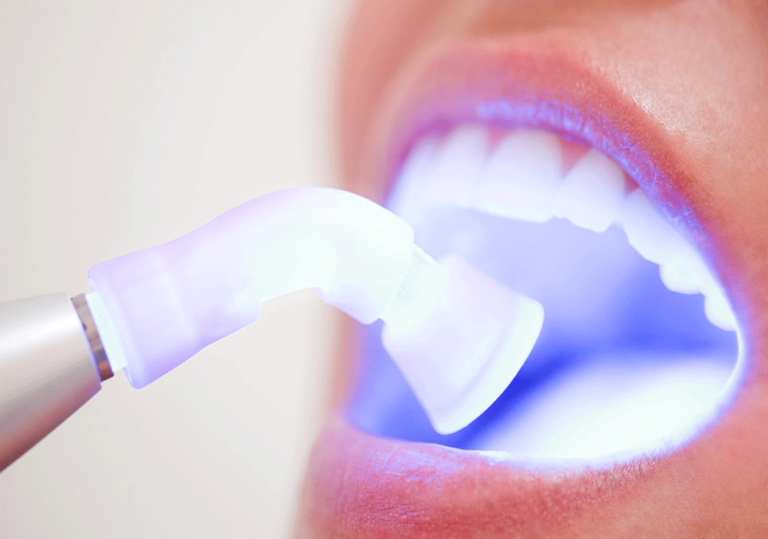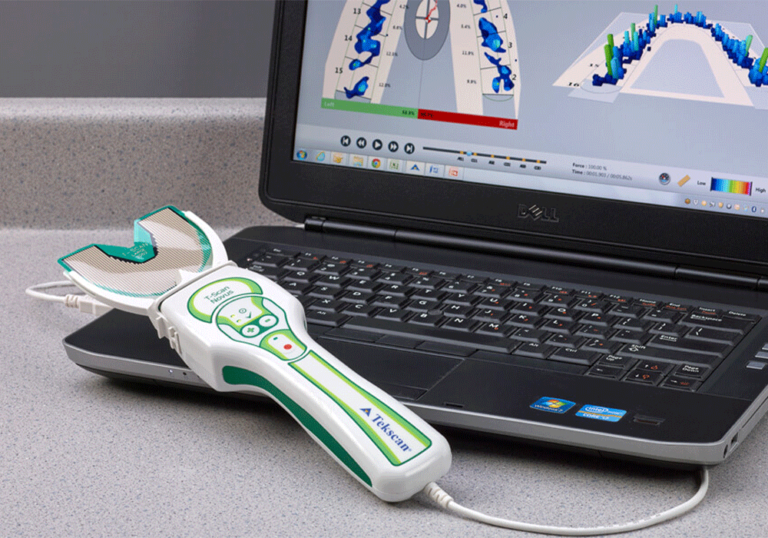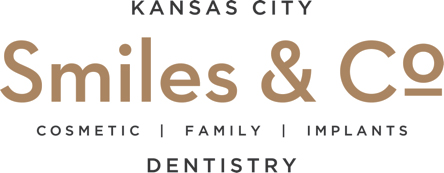Welcome to Your Family Dentist
Kansas City Smiles and Co.

Two Offices. One Vision.
At Kansas City Smiles & Co., we pride ourselves on being your trusted family dentist, providing exceptional dental care in Independence and Blue Springs, MO, and the surrounding areas. Our dedicated team ensures that you and your family receive the best possible dental treatment in a warm and welcoming environment.
Our founders, a dedicated husband-and-wife team, share a unified vision of compassionate dental care. Together, Drs. Nikki and Wesley Christian have two well-established practices in Blue Springs and Independence, MO.
We are deeply committed to our foundational principles: ensuring you feel welcomed, comfortable, and fully informed during every visit. Our primary objective is to help you achieve and maintain the beautiful smile you deserve.
Experience a higher quality of dental care.
Kansas City Smiles & Co. is accepting new patients and would love to serve you and your family.
Our Beliefs
You should feel comfortable
We believe that your comfort is everything. Our team goes above and beyond to create a relaxing atmosphere, ensuring that you feel at ease from the moment you walk through our doors. A cheerful staff, comfy couches, and happy plants greet you at the door.
You should have clear expectations
Your successful dental experience starts with clear communication. We take the time to explain your treatment options and procedures so you always know what to expect. If you have questions before or after your appointment, don't hesitate to ask!
Going to the dentist shouldn’t be a burden
Our goal is to make sure your dental visits are pleasant and stress-free. Our friendly staff and modern amenities are designed to make your time with us as pleasant as possible.
Meet Our Doctors

Dr. Nikki Christian- Independence, MO
DDS
Dr. Nikki Christian is the foremost practitioner at our Independence office, having expertise in a wide array of dental disciplines including comprehensive, preventative, and cosmetic dentistry, as well as Invisalign® treatment. With unwavering passion, she looks forward everyday to serving her community.

Dr. Wesley Christian- Blue Springs, MO
DMD
Dr. Wesley Christian is the leading doctor at our Blue Springs office. Being a dentist means the world to Dr. Wesley Christian; after his family, it is his greatest passion. It is Dr. Christian’s goal each and every day to provide his patients with the kind of care he would want for himself.
Areas We Serve
At Kansas City Smiles & Co., we proudly serve a diverse and vibrant community across several Missouri locations. Our commitment to providing exceptional dental care extends to patients from the following areas:
Schedule an Appointment!
Let Kansas City Smiles & Co. take care of all your dental needs.
Contact us today to experience expert, kind, and compassionate dental care.
The office was able to squeeze me (a brand new patient) in to fix a loose crown on one of my implants done by another dentist here in town. Dr. Nikki and Hannah were great to work with and solved my problem quickly, even though the crown was difficult to get on and off. I have already scheduled a cleaning and exam for the remainder of my teeth. Excellent service, friendly, humorous, and professional.
- Lisa T.
Dr. Nikki Christian has done an amazing job of finding the right staff! They are all knowledgeable and you can really tell they love their jobs! It always a pleasure to go in. They take such great care of my boys, ages 2 and 7, as well as myself and husband! They are really a one-size-fits-all dental office taking care of ALL AGES! Dr. Christian really explains things we need to us so we understand it and don’t ever feel like it’s unnecessary! THANK YOU for being so amazing!
- Hannah E.
I can't recommend Dr. Christian and her staff enough! I had a very horrible experience with a dentist in Liberty, so when a friend recommended Smiles and Co. I was desperate. I had lots of work I wanted to get done on my teeth before losing my father's (phenomenal) dental insurance. They instantly got the ball rolling! Straightening my teeth has always been something I wanted to do, so when I showed interest in Invisalign, they again started right away! The staff at this office actually listen and work to get the smile YOU want. Dr. Christian has even called me from her personal phone asking how I'm doing/feeling after long, extensive appointments. Smiles and Co. have been amazing to work with and I look forward to using this office for as long as I'm in KC! Thank you for allowing me to get the smiles I've always dreamed of!!
- Lorren H.
Dr. Nikki Christian's office is always clean and friendly. I'm always greeted with beautiful smiles and positive attitudes. My last visit was amazing. The staff that worked with me were patient and understanding of my extremely sensitive teeth, which caused for tedious work, but they never complained. I love this office, and wouldn't trade them in for anything!! I would highly recommend this dental office!
- Dawn B.
I had a great experience at my first dental appointment with Nikki Christian and all of the staff in her office! Everyone was kind, caring, efficient, professional and enjoyable to interact with. Every part of my appointment was made simple and communicated clearly to me. The environment is inviting and calming, and visually beautiful! It’s wonderful to discover a dentist office that makes a visit for dental work such a positive, enjoyable experience!
- Tricia C.
I hadn't gone to a dentist for years due to a previous bad experience and there was no judgement, just making me feel as comfortable as possible. After going for my initial visit, and now my 6 month cleaning, I can say I am glad I picked Kansas City Smiles & Co. The hygienist and Doctor are so nice and just want the best for you and your teeth. I can't think of going anywhere else! I no longer get nervous/anxious going to the dentist.
- Kaitlyn E.
I have been going here for years. Dr. Christian is excellent, but also the same is his staff. Every. Single. One. They remember you, welcome you and skills are second to none. Best dental office.
- Elizabeth J.
I know this will sound a bit hyperbolic, but this place has provided me and mine the best dental care I have ever received. All the care administrators are genial, informative, and, here's the best part, actually know what they're doing. Great care. Great people. If it wasn't for the whole "dental" thing, I would love to come here more often.
- Ken M.
Best dentist experience I’ve ever had! Every staff member from the billing department, to the hygienist, to the dentist was honest and transparent and SO KIND! They have created such a fun atmosphere. The team members feel like they love their job and love their patients!!
- Glory H.
I'm not big on leaving Google reviews but when I come across a staff like this...they deserve a 5 star rating! I've been going to Dr. Nikki's husband, Dr. Wesley Christian for years & had to switch offices. I couldn't be more happy with the office switch. Not only is Dr. Nikki amazing, takes the TIME TO EXPLAIN EVERYTHING, but her staff goes above and beyond for their patients. Mel has done great work on my teeth, gone above my standards, and is so kind and caring. Stacy takes her time to explain all the billing in detail and cares about helping make things work for their patients. If you're looking for a dentist...you're search is over! (:
- Kyla R.
I had my first appointment at KC Smiles & Co. I was very impressed and had a wonderful experience. I felt welcome as soon as I entered the door. Rachel and Dr. Nikki are so nice, and they were great at explaining everything with me. And even after only one appt., I can easily say Rachel is one of the best hygienists I’ve ever had! I’m grateful for the whole process. So happy I found KC Smiles & Co!
- Sarah B.
Dr. Christian, I don’t know how you are able to hire the most talented and compassionate employees, but you do. From the women working at the desk handling insurance, and every single one of your hygienist, they are all professional, courteous, and encouraging in my difficult dental care. I am thankful for you and your services.
- Angela N.
New Technology With a Gentle Touch
At Kansas City Smiles & Co., we are dedicated to delivering top-tier dental care by leveraging the latest advancements in dental technology. Our state-of-the-art tools enable us to identify and address dental issues promptly and efficiently, ensuring that your comfort remains our highest priority throughout your visit. When you choose our office, you can be confident that you are receiving the most advanced dental treatments available, tailored to provide you with the best possible outcomes.

Intraoral Camera
Our intraoral camera allows us to get a close-up view of your teeth, making it easier to diagnose and treat dental issues with precision.
Intraoral Camera
Digital X-rays
Digital X-rays offer a safer, faster, and more accurate way to capture images of your teeth and jaw, reducing your radiation exposure.
Digital X-rays
iTero Intraoral Scanner
The iTero Intraoral Scanner creates detailed 3D images of your teeth and gums, enhancing the accuracy of our treatments and improving your overall experience.
iTero Intraoral Scanner
Soft Tissue Laser
Our soft tissue laser technology provides a minimally invasive option for treating gum disease and other soft tissue issues, promoting faster healing and less discomfort.
Soft Tissue Laser
T-SCAN Occlusal Scanner
The T-SCAN Occlusal Scanner helps us analyze your bite and ensure that your teeth fit together perfectly, preventing issues related to misalignment.
T-SCAN Occlusal Scanner

